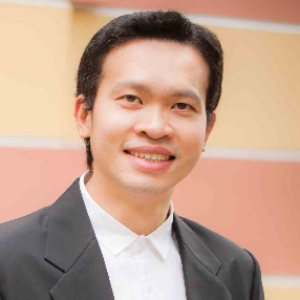Title : Practical points of antipsychotics in substance-induced psychosis and schizophrenia: Similarities or differences?
Abstract:
Psychotic symptoms are the main symptoms in schizophrenia and substance-induced psychosis, which are treated by antipsychotic drugs. The main pathophysiology of psychotic symptom is overactivity of dopamine in mesolimbic tract that can be treated by the use of dopamine-2 receptor antagonist effect of antipsychotics. However, although antipsychotics are the mainstay of treatment for schizophrenia and substance-induced psychosis, concept and dosage regimen of antipsychotics in 2 conditions have different. Schizophrenia is a progressive neurodevelopmental disorder that characterized by chronic disease, therefore, long term treatment with antipsychotic is needed for prevent relapse and recurrent. For substance-induced psychosis which substances elevated dopamine level in mesolimbic tract, dopamine can gradually reduce when substance is discontinued. Therefore, antipsychotics could be used only short term or a specific period in substance-induced psychosis. However, pattern of antipsychotic use may vary with different substances. For stimulant-induced psychosis, antipsychotics generally show a good response and full effect within one week. Response degree of antipsychotics in stimulant-induced psychosis was higher than schizophrenia. Antipsychotics are recommended at a low dose and for short-term treatment, for example, continuing use for 2 weeks after psychotic symptom resolve. However, for cannabis-induced psychosis, evidence-based studies have found that the full effect of antipsychotics may be seen after a month. Therefore, antipsychotics for cannabis-induced psychosis often need to be used at higher dose and for a longer period than stimulant-induced psychosis.




